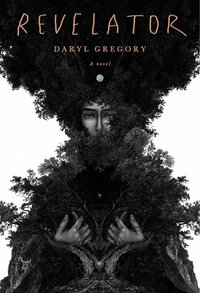You need to sign in or sign up before continuing.
Take a photo of a barcode or cover
dark
mysterious
sad
tense
medium-paced
Strong middle, okay beginning, weak end. I’m surprised it took a turn for the deeply okay. Maybe I expected too much horror? The character development felt flat and unconvincing to me. Sunny was unconvincing. Whatever this book tried to do in the end was done way better. Just go read Sharp Objects, honestly.
This sounds so harsh djfjdjd there were genuinely some banger parts and lines, but I’m tired and overall I’m disappointed in the book so I’m a bit pissy about it.
Kiiiiind of in love with Stella though. Who knew I’d be into women who brandish shotguns in churches??? I certainly didn’t. God I’m so gay
This sounds so harsh djfjdjd there were genuinely some banger parts and lines, but I’m tired and overall I’m disappointed in the book so I’m a bit pissy about it.
Kiiiiind of in love with Stella though. Who knew I’d be into women who brandish shotguns in churches??? I certainly didn’t. God I’m so gay
I'm not exactly sure how to explain this one. I liked it, and I thought it was interesting but at the same time it also felt like a chore to get through. The twists, however, were what kept me going and ultimately what helped to give this book a 3.5 rating in my opinion.
I've been trying to find books set in Appalachia ever since hurricane Helene decimated my hometown. I found Daryl Gregory's horror novel Revelator by literally searching "Appalachia" in Audible. I've come to really enjoy horror novels over the last two years or so, but while I'm aware that there's an entire subgenre of Appalachian horror, I've honestly barely looked into it. I listened to and enjoyed well enough a few episodes of Old Gods of Appalachia shortly before the hurricane, but a lot of Appalachian horror seems to be Lovecraftian (uppercase) in that it frames the mountains as barely explored and unknowably vast and ancient, or lovecraftian (lowercase) in that it's pretty shitty about rural people and makes them out to be essentially subhuman. Obviously, the latter is less prominent than it once was, but Deliverance and "hillbilly horror" still hold an outsize place in our cultural memory.
As for the former, I've never really jived with the image of the mountains as untamed wilderness that humans will never fully understand - that's too uncomfortably close to a tourism slogan for my taste. Our mountains are pretty painstakingly developed and curated, with just about every inch of land accounted for and signed off to someone or other. A good chunk of the tree cover that makes the mountains look uninhabited were grown deliberately to hide just how much development has been done on the mountainsides. In fact, since wind, floods, and landslides took down so many trees, many more buildings are visible on the mountainsides post-Helene than any other time in my memory. But by creating the illusion of being surrounded on all sides by untrammeled nature, we can attract tourists, who then see us locals as being just barely connected to civilization through the presumed-to-be-dense forest on all sides. Leaning into cosmic horror for the region feels to me like an extension of this narrative. It's like being a Disneyland employee who works every day on the Pirates of the Caribbean theme park ride and then watches the movie, I'd imagine. Yes, the story is fantasy, but it's a fantasy that represents a shattered narrative around a too-familiar reality.
Revelator leans a little bit into both these styles of horror, as a novel about a rural cult that worships an eldritch god in a cove in East Tennessee. But Gregory is deliberate and scalpel-precise with his usage of these horror conventions, foregrounding the relatable humanity of his characters and the hominess of his mountain setting. I also appreciate that the novel is set during the planning and construction period for the Blue Ridge Parkway, in the 1920s and 30s - we have the philosophies around the Parkway project to thank for a lot of that deliberate curation of the illusion of untamed nature that I mentioned earlier. While I appreciate the Parkway now, it's hard to condone just how many people the project displaced from their family homes to create that appearance. Revelator is about one such community as it is being displaced, and how that desperation fueled a race to prove that their community has something to offer the outside world to justify its continued existence.
Protagonist Stella Birch is a moonshiner who returns to the cove for her grandmother Motty's funeral, over a decade after she ran away as a child. The Birches run a religion worshipping some ancient, incomprehensibly powerful being discovered in a cave on their property, and as a child, Stella had been a "revelator" for her family's religion, taking in the thoughts and feelings of that god - which revelators refer to as the "Ghostdaddy" - and attempting to translate them into something comprehensible for their holy books. The women of the Birch family have always taken up the revelator role, while Stella's uncle wrote down and edited their words to create a cohesive narrative for the religion. While Stella ostensibly returns to pay her respects to Motty, she's really there to try to rescue the new revelator, Sunny, a child in a similar position to Stella's when she ran away. Unfortunately, in Stella's absence, her uncle has built up the religion's following considerably, attracting a number of powerful funders in Atlanta, Georgia, as part of a gambit not to lose ownership of the land the god is on to the National Park Service. The narrative jumps between two timelines: Stella's childhood and her return to the cove, seeing everything she'd one taken for granted with the new clarity of an adult.
Revelator is primarily about religious trauma and patriarchy - specifically patriarchy in religious contexts. Parts of it reminded me of Rachel Harrison's Black Sheep, which also used a weird horror cult to draw comparisons to fundamentalist Christianity, but Revelator doesn't simply criticize its fictional religion and allow the reader to apply those criticisms to real-world analogues. Rather, the practices and beliefs of the church of the god under the mountain are each initially bizarre and not easily applicable until Stella herself remarks on the similarities between each practice or belief and those of her friends at the cove's own Christian church. Gregory is impressively skilled at making accepted cultural practices sound bizarre and alien until he sees fit to make it clear what he's writing about. This draws the reader into developing their own criticisms and refutations of a practice or belief before knowing that their criticisms are applicable to something plenty of real churches do now or did less than a century ago.
This means that the novel's mechanism for discussing religious trauma is fairly complex for a horror novel about a space god in a cave. Stella remembers a Christian practice she criticized as a child, then realizes as an adult that that criticism applies just as much to a Ghostdaddy practice she took for granted at the time. Simultaneously, the reader sees that Ghostdaddy practice and is repulsed by it, then reads about Stella criticizing a Christian practice with which the reader is presumably familiar, and then makes the connections between the two as adult Stella does. It doesn't always go this way, obviously, but it's still pretty cool tracking my own thoughts as they go from mirroring Stella's to converging with them from the opposite end of things. I've not read a ton of books that have managed that kind of trick.
There's some real familiar internal consistencies to the Ghostdaddy religion, too. Despite the fact that it's built entirely on the words of women, those women have no actual power or decision-making standing in the religion itself. They're treated more like resources from which the words of the god can be mined, at the cost of their bodies and minds, rather than like humans who do more labor for the church than anyone else. The holy books, too, are written down and edited by a human man, who created the rule that no holy book gets read by anyone in the church until the woman from whom the words of the book are extracted has died. This way, the woman isn't there to refute the man's interpretations of the words she herself accessed. When Stella does read the books, she finds that the messages around which the entire religion is based stand in stark contrast to the actual thoughts and feelings of the god with whom she communes. But those messages get adherents and funding, none of which reach Stella herself.
While this book is a cosmic horror, then, it's one that finds the hauntingly unknowable in familiar elements, rather than playing up the cove itself as somewhere uniquely frightening or untamed. The people in this book act like people and their home is their home, not a speck of civilization in some impossibly vast wilderness. There's a cosmic god and it's scary and stuff, but the horror of the book is at its most potent when humans are doing what humans always do - creating vast narratives that don't necessarily hold up to scrutiny, then using those narratives to amass resources at the cost of others' health and safety.
It's a decently complex book, both in structure and in subject matter, and in retrospect, I shouldn't have listened to it as an audiobook. It took me longer than I care to admit to actually get a handle on which character was which and who was doing what in which time period, and I don't think I would have had nearly as much difficulty if I had text in my hands, allowing me to tackle sentences at my own pace, and to just...like...flip back a few pages from time to time to compare names. It's not that it has a uniquely confusing audiobook or anything - I really like the narrator, who kept me consistently entertained and engaged - it's just a book with enough moving parts that I'd prefer the option to make some of those parts stop moving for a second.
Once everything did click, though, I sped through the rest of the book. Revelator was honestly a blast, with great characters, a laudable approach to setting, some creepy moments, and a genuinely batshit ending. I'm glad I read it, and I wouldn't hate coming back to it sometime if I ever get the physical book in my hands.
As for the former, I've never really jived with the image of the mountains as untamed wilderness that humans will never fully understand - that's too uncomfortably close to a tourism slogan for my taste. Our mountains are pretty painstakingly developed and curated, with just about every inch of land accounted for and signed off to someone or other. A good chunk of the tree cover that makes the mountains look uninhabited were grown deliberately to hide just how much development has been done on the mountainsides. In fact, since wind, floods, and landslides took down so many trees, many more buildings are visible on the mountainsides post-Helene than any other time in my memory. But by creating the illusion of being surrounded on all sides by untrammeled nature, we can attract tourists, who then see us locals as being just barely connected to civilization through the presumed-to-be-dense forest on all sides. Leaning into cosmic horror for the region feels to me like an extension of this narrative. It's like being a Disneyland employee who works every day on the Pirates of the Caribbean theme park ride and then watches the movie, I'd imagine. Yes, the story is fantasy, but it's a fantasy that represents a shattered narrative around a too-familiar reality.
Revelator leans a little bit into both these styles of horror, as a novel about a rural cult that worships an eldritch god in a cove in East Tennessee. But Gregory is deliberate and scalpel-precise with his usage of these horror conventions, foregrounding the relatable humanity of his characters and the hominess of his mountain setting. I also appreciate that the novel is set during the planning and construction period for the Blue Ridge Parkway, in the 1920s and 30s - we have the philosophies around the Parkway project to thank for a lot of that deliberate curation of the illusion of untamed nature that I mentioned earlier. While I appreciate the Parkway now, it's hard to condone just how many people the project displaced from their family homes to create that appearance. Revelator is about one such community as it is being displaced, and how that desperation fueled a race to prove that their community has something to offer the outside world to justify its continued existence.
Protagonist Stella Birch is a moonshiner who returns to the cove for her grandmother Motty's funeral, over a decade after she ran away as a child. The Birches run a religion worshipping some ancient, incomprehensibly powerful being discovered in a cave on their property, and as a child, Stella had been a "revelator" for her family's religion, taking in the thoughts and feelings of that god - which revelators refer to as the "Ghostdaddy" - and attempting to translate them into something comprehensible for their holy books. The women of the Birch family have always taken up the revelator role, while Stella's uncle wrote down and edited their words to create a cohesive narrative for the religion. While Stella ostensibly returns to pay her respects to Motty, she's really there to try to rescue the new revelator, Sunny, a child in a similar position to Stella's when she ran away. Unfortunately, in Stella's absence, her uncle has built up the religion's following considerably, attracting a number of powerful funders in Atlanta, Georgia, as part of a gambit not to lose ownership of the land the god is on to the National Park Service. The narrative jumps between two timelines: Stella's childhood and her return to the cove, seeing everything she'd one taken for granted with the new clarity of an adult.
Revelator is primarily about religious trauma and patriarchy - specifically patriarchy in religious contexts. Parts of it reminded me of Rachel Harrison's Black Sheep, which also used a weird horror cult to draw comparisons to fundamentalist Christianity, but Revelator doesn't simply criticize its fictional religion and allow the reader to apply those criticisms to real-world analogues. Rather, the practices and beliefs of the church of the god under the mountain are each initially bizarre and not easily applicable until Stella herself remarks on the similarities between each practice or belief and those of her friends at the cove's own Christian church. Gregory is impressively skilled at making accepted cultural practices sound bizarre and alien until he sees fit to make it clear what he's writing about. This draws the reader into developing their own criticisms and refutations of a practice or belief before knowing that their criticisms are applicable to something plenty of real churches do now or did less than a century ago.
This means that the novel's mechanism for discussing religious trauma is fairly complex for a horror novel about a space god in a cave. Stella remembers a Christian practice she criticized as a child, then realizes as an adult that that criticism applies just as much to a Ghostdaddy practice she took for granted at the time. Simultaneously, the reader sees that Ghostdaddy practice and is repulsed by it, then reads about Stella criticizing a Christian practice with which the reader is presumably familiar, and then makes the connections between the two as adult Stella does. It doesn't always go this way, obviously, but it's still pretty cool tracking my own thoughts as they go from mirroring Stella's to converging with them from the opposite end of things. I've not read a ton of books that have managed that kind of trick.
There's some real familiar internal consistencies to the Ghostdaddy religion, too. Despite the fact that it's built entirely on the words of women, those women have no actual power or decision-making standing in the religion itself. They're treated more like resources from which the words of the god can be mined, at the cost of their bodies and minds, rather than like humans who do more labor for the church than anyone else. The holy books, too, are written down and edited by a human man, who created the rule that no holy book gets read by anyone in the church until the woman from whom the words of the book are extracted has died. This way, the woman isn't there to refute the man's interpretations of the words she herself accessed. When Stella does read the books, she finds that the messages around which the entire religion is based stand in stark contrast to the actual thoughts and feelings of the god with whom she communes. But those messages get adherents and funding, none of which reach Stella herself.
While this book is a cosmic horror, then, it's one that finds the hauntingly unknowable in familiar elements, rather than playing up the cove itself as somewhere uniquely frightening or untamed. The people in this book act like people and their home is their home, not a speck of civilization in some impossibly vast wilderness. There's a cosmic god and it's scary and stuff, but the horror of the book is at its most potent when humans are doing what humans always do - creating vast narratives that don't necessarily hold up to scrutiny, then using those narratives to amass resources at the cost of others' health and safety.
It's a decently complex book, both in structure and in subject matter, and in retrospect, I shouldn't have listened to it as an audiobook. It took me longer than I care to admit to actually get a handle on which character was which and who was doing what in which time period, and I don't think I would have had nearly as much difficulty if I had text in my hands, allowing me to tackle sentences at my own pace, and to just...like...flip back a few pages from time to time to compare names. It's not that it has a uniquely confusing audiobook or anything - I really like the narrator, who kept me consistently entertained and engaged - it's just a book with enough moving parts that I'd prefer the option to make some of those parts stop moving for a second.
Once everything did click, though, I sped through the rest of the book. Revelator was honestly a blast, with great characters, a laudable approach to setting, some creepy moments, and a genuinely batshit ending. I'm glad I read it, and I wouldn't hate coming back to it sometime if I ever get the physical book in my hands.
dark
emotional
funny
mysterious
tense
medium-paced
Plot or Character Driven:
A mix
Strong character development:
Yes
Loveable characters:
Yes
Diverse cast of characters:
No
Flaws of characters a main focus:
Complicated
Suuuuch a thrilling and intriguing read. The author does an incredible job of only giving you little pieces of the story at a time. It makes it hard to stop reading! Also, incredibly complex characters that feel very tangible, along with a very freaky monster that is disturbing no matter how you picture it. Cool to show how religious fanatics would respond if they worshipped a being that was actually real + if women were the only ones who could commune with it
mysterious
medium-paced
dark
mysterious
medium-paced
Plot or Character Driven:
A mix
Strong character development:
Yes
Loveable characters:
Complicated
Diverse cast of characters:
No
Flaws of characters a main focus:
Yes
dark
mysterious
reflective
tense
medium-paced
Plot or Character Driven:
Plot
Strong character development:
Yes
Diverse cast of characters:
No
Flaws of characters a main focus:
Yes
This book takes places in the back woods of Tennessee during 1933 and 1948. The Birch women are considered the Revelator to the Ghostdaddy of the mountain. And Stella was just one cog in that wheel, until she wasn't anymore.
Stella is a likable protagonist. I mean she likes to cuss around religious people-gotta love that! But she is a younger woman that is a professional bootlegger. She is dumped at her grandmother's home when she is a child. Monty (g-ma) is cruel and strange and her character fits right into this book.
This book is a horror book but it's not one that is scary, but there is some bizarro horror type things that happen.
Stella is a likable protagonist. I mean she likes to cuss around religious people-gotta love that! But she is a younger woman that is a professional bootlegger. She is dumped at her grandmother's home when she is a child. Monty (g-ma) is cruel and strange and her character fits right into this book.
This book is a horror book but it's not one that is scary, but there is some bizarro horror type things that happen.
dark
mysterious
tense
fast-paced
Plot or Character Driven:
A mix
Strong character development:
Yes
Loveable characters:
Complicated
Diverse cast of characters:
Yes
Flaws of characters a main focus:
Yes
dark
mysterious
tense
fast-paced
Plot or Character Driven:
A mix
Strong character development:
Yes
Loveable characters:
Complicated
Diverse cast of characters:
Complicated
Flaws of characters a main focus:
Complicated






